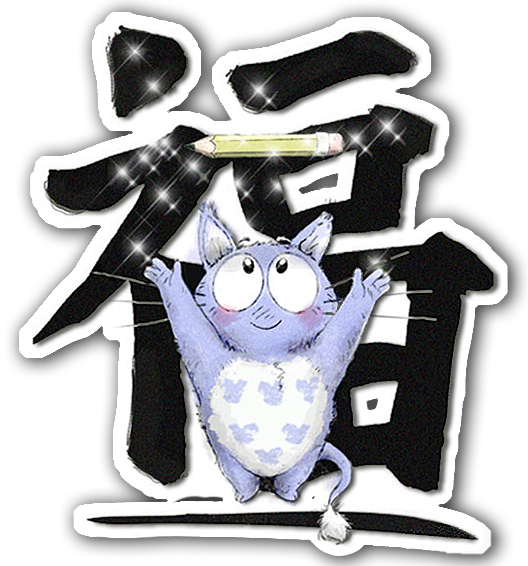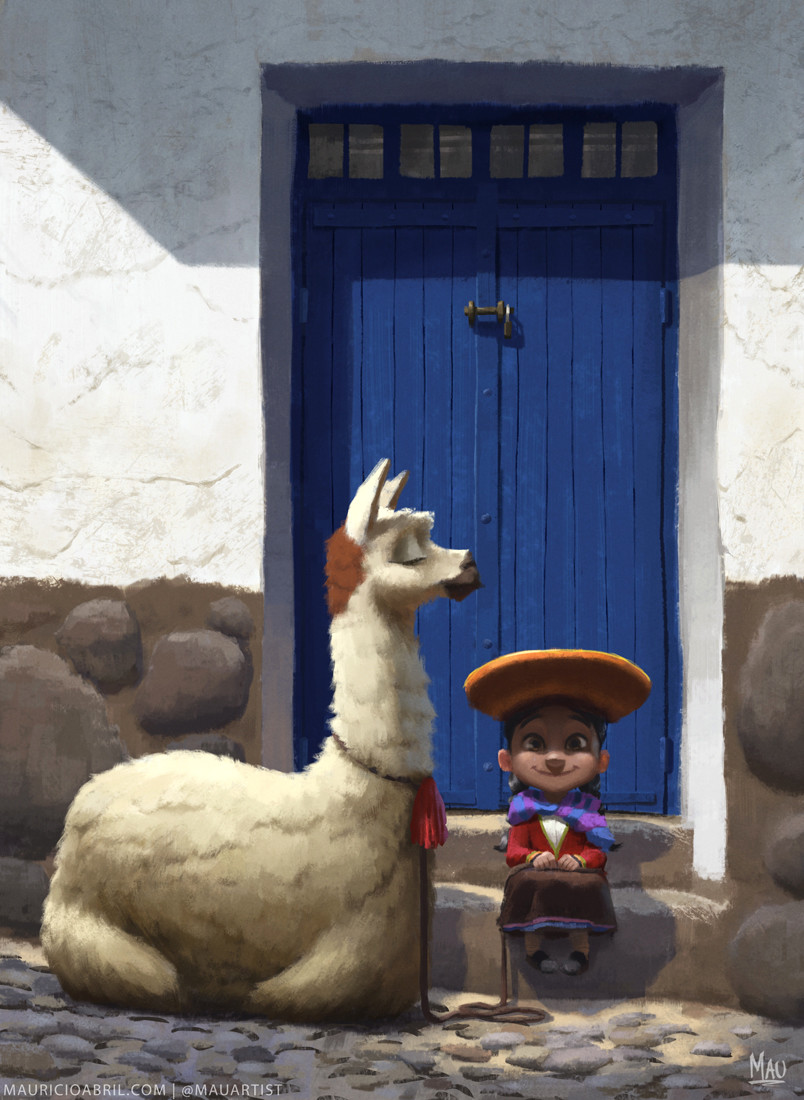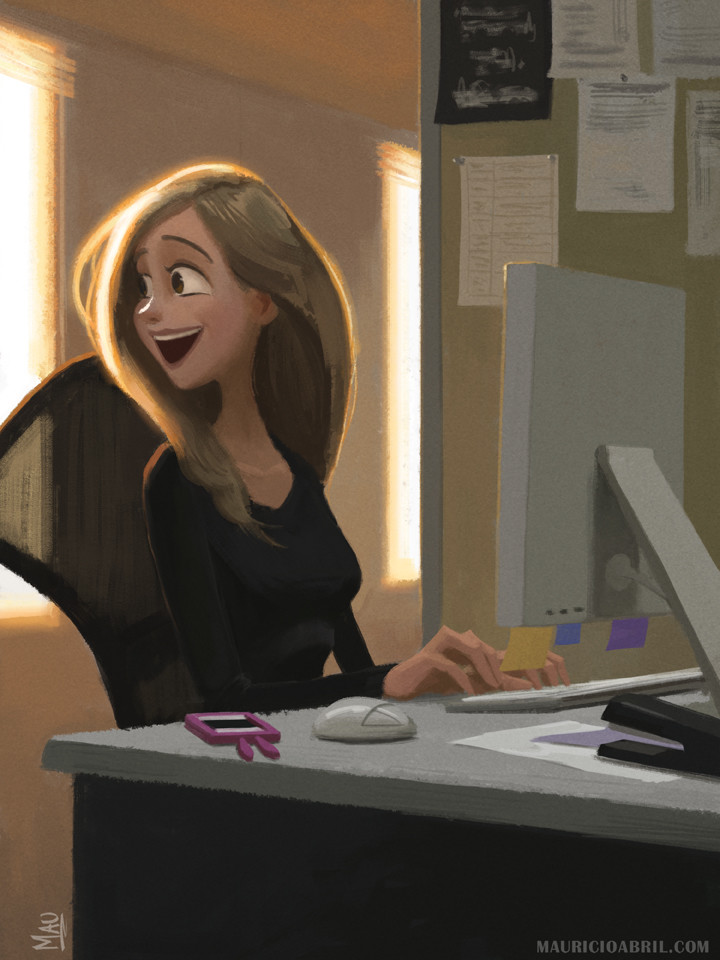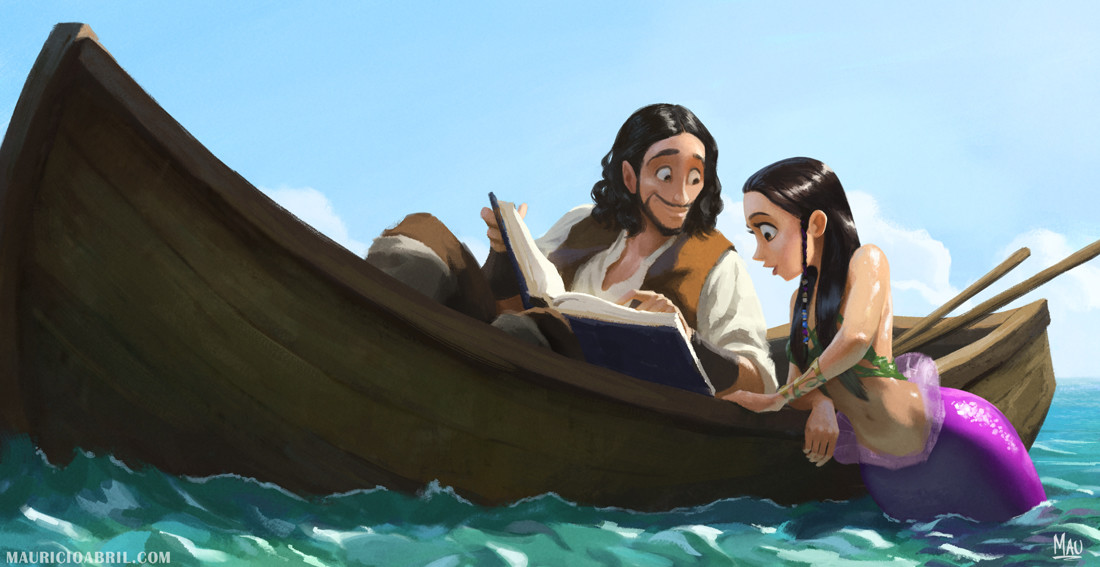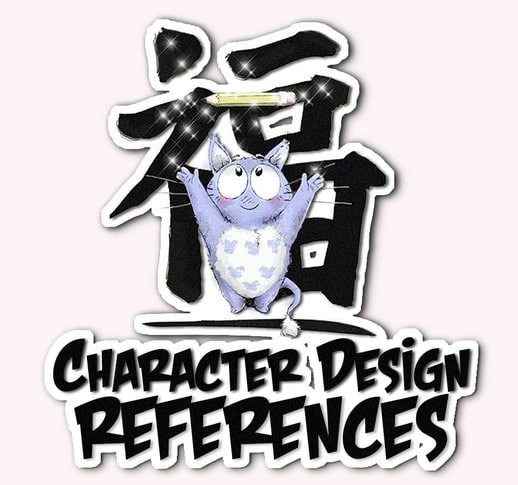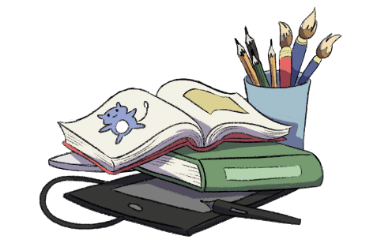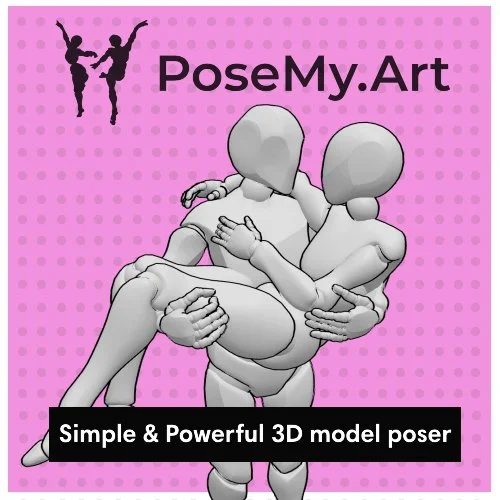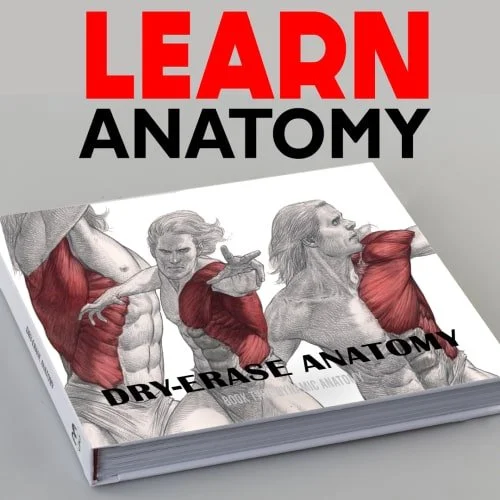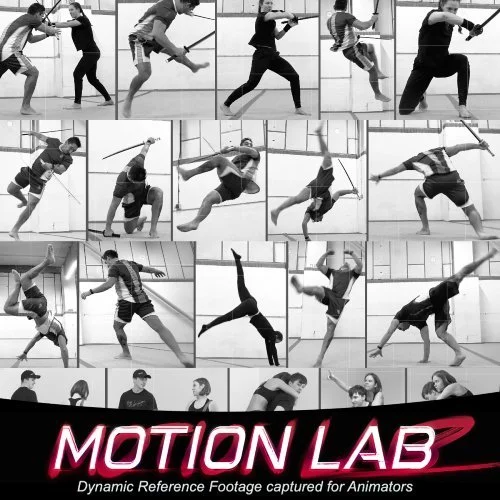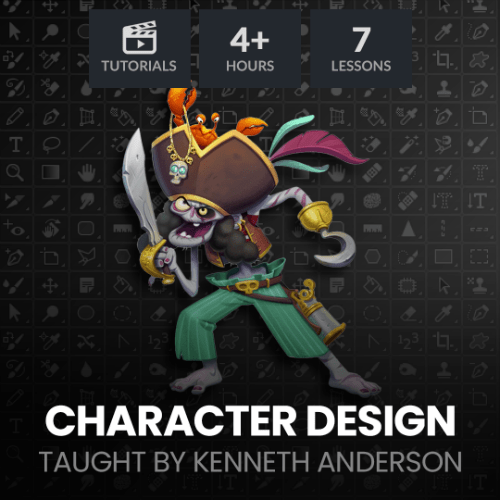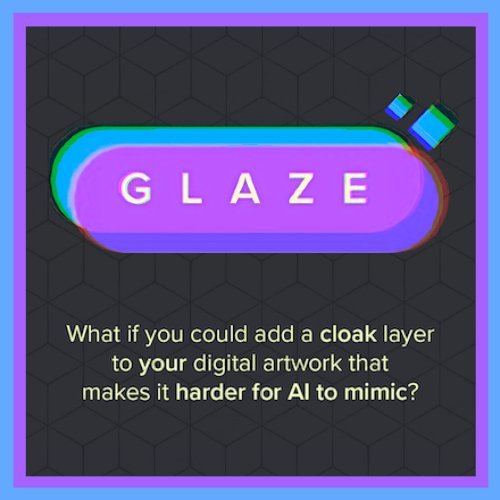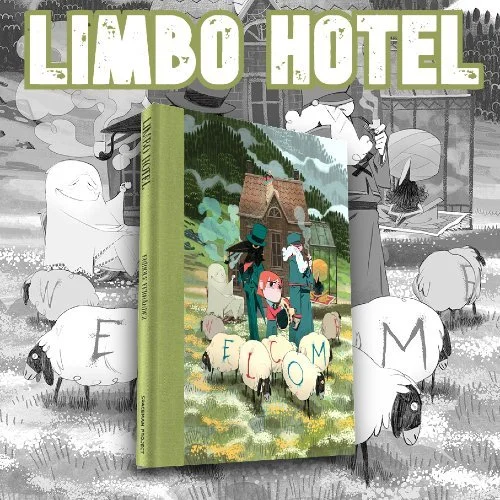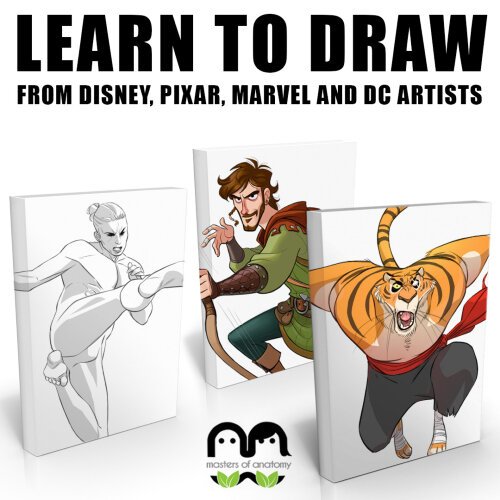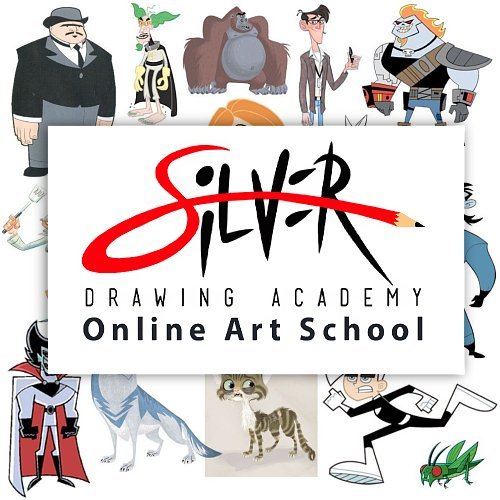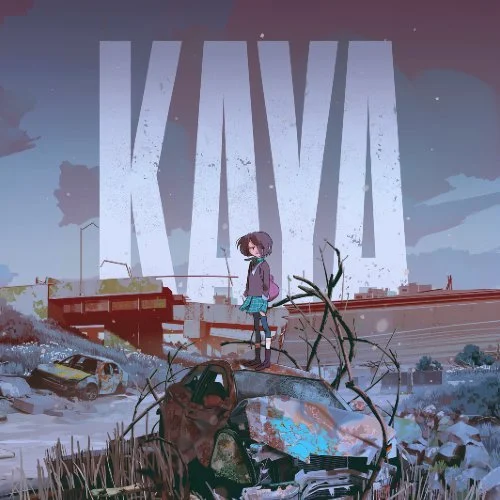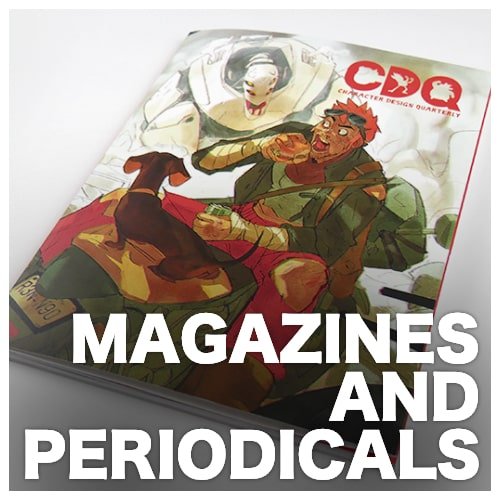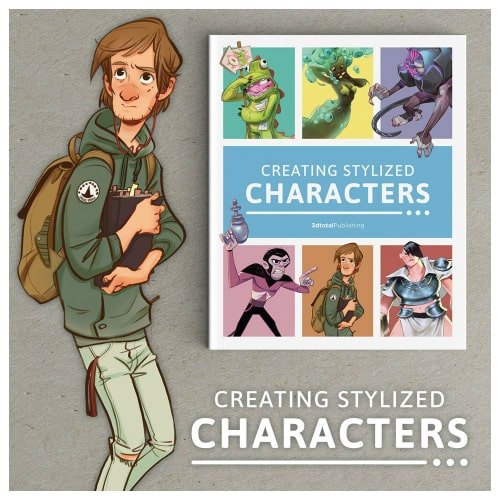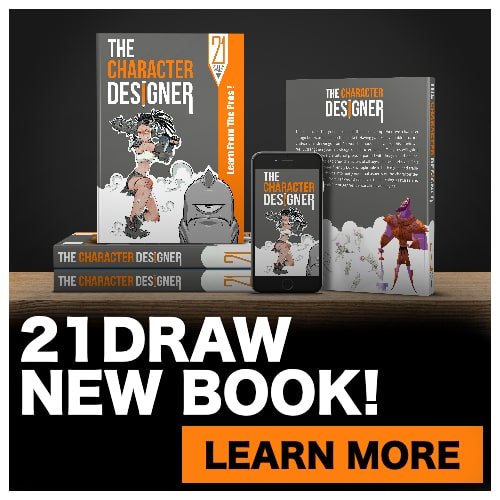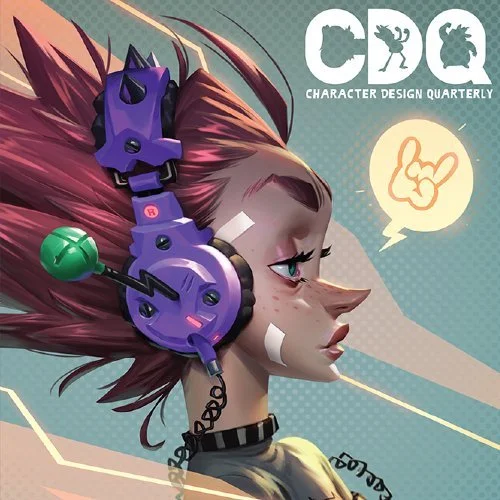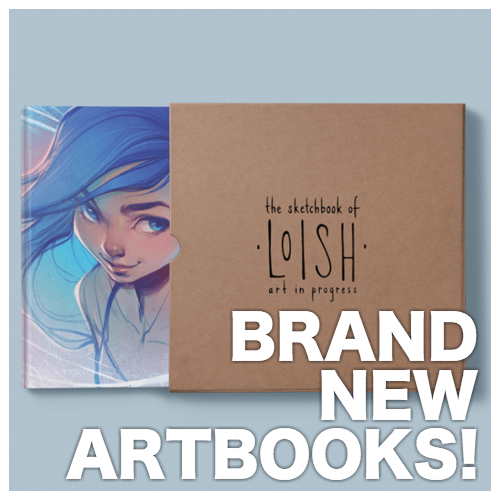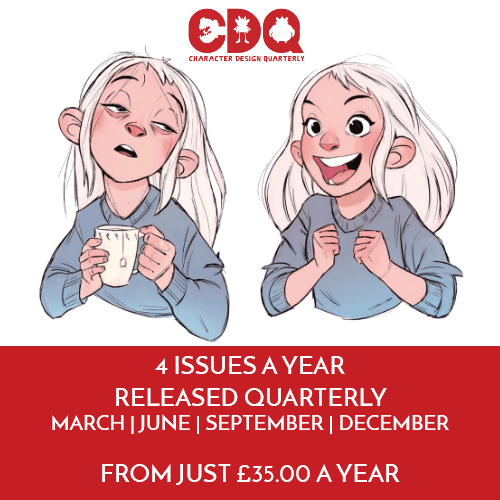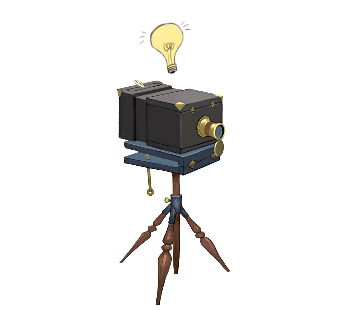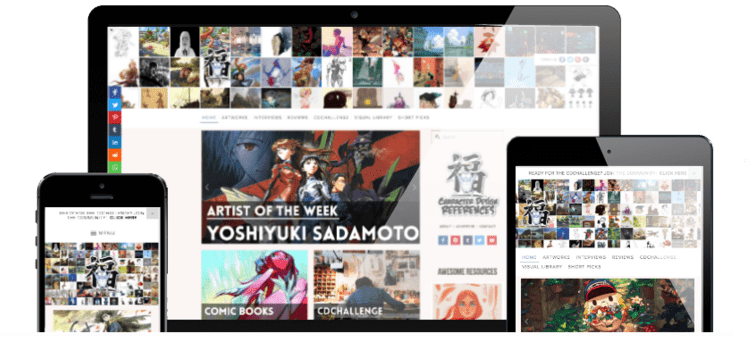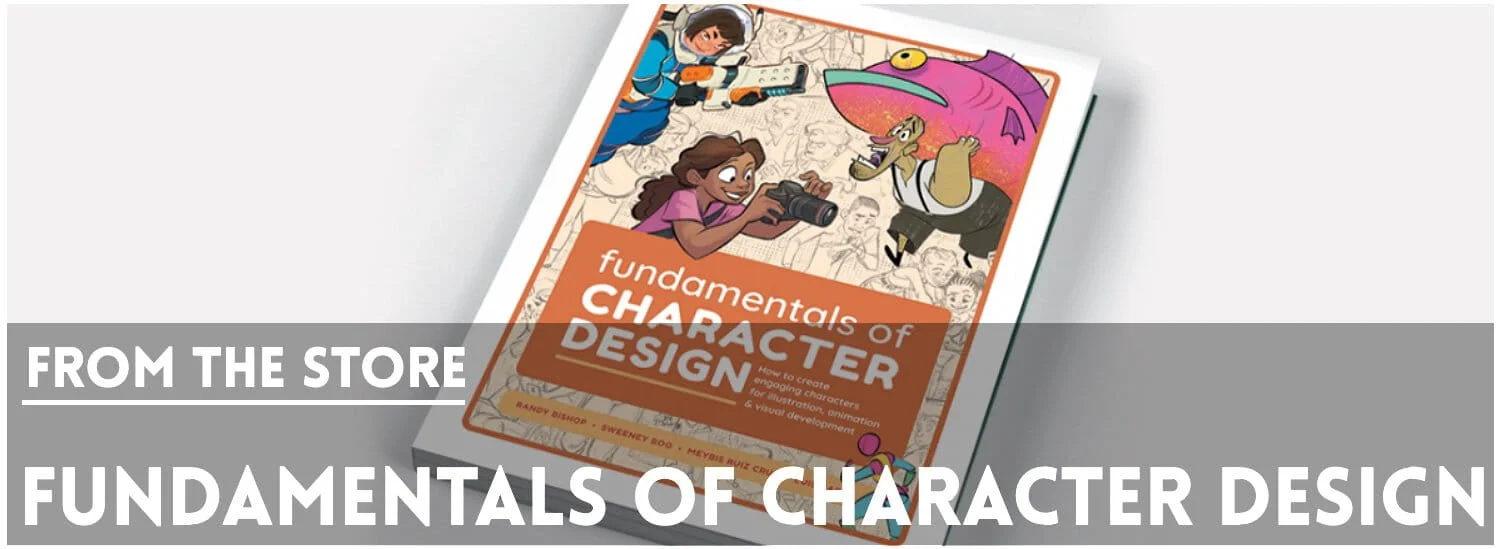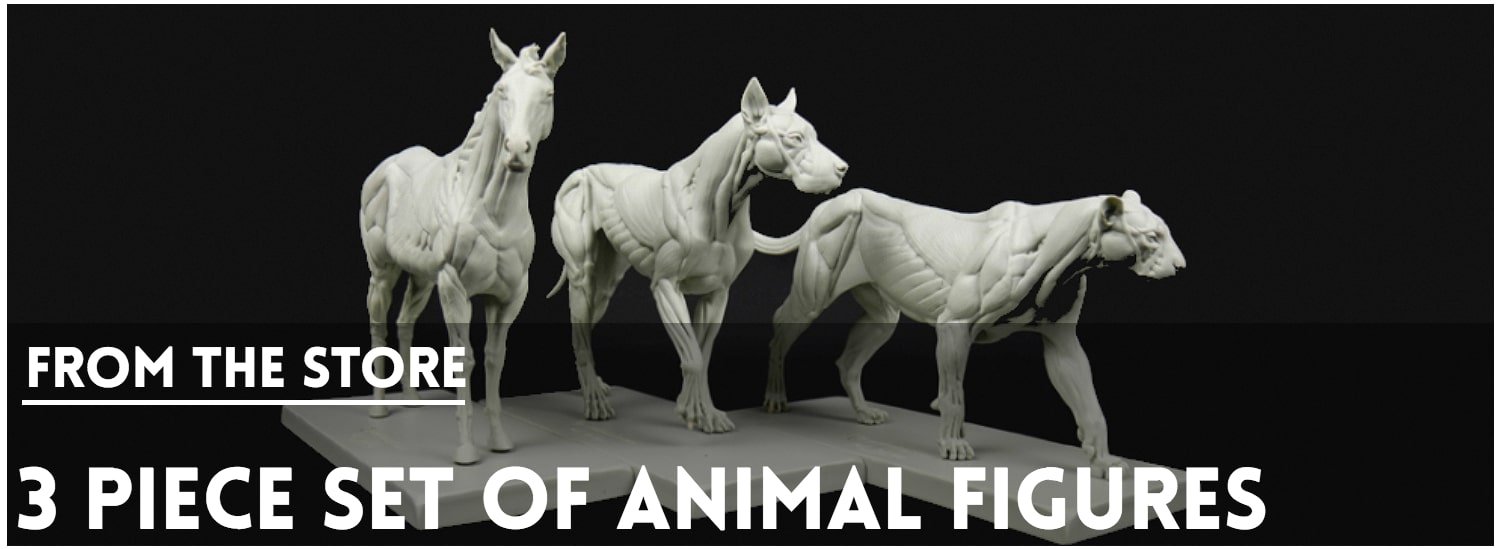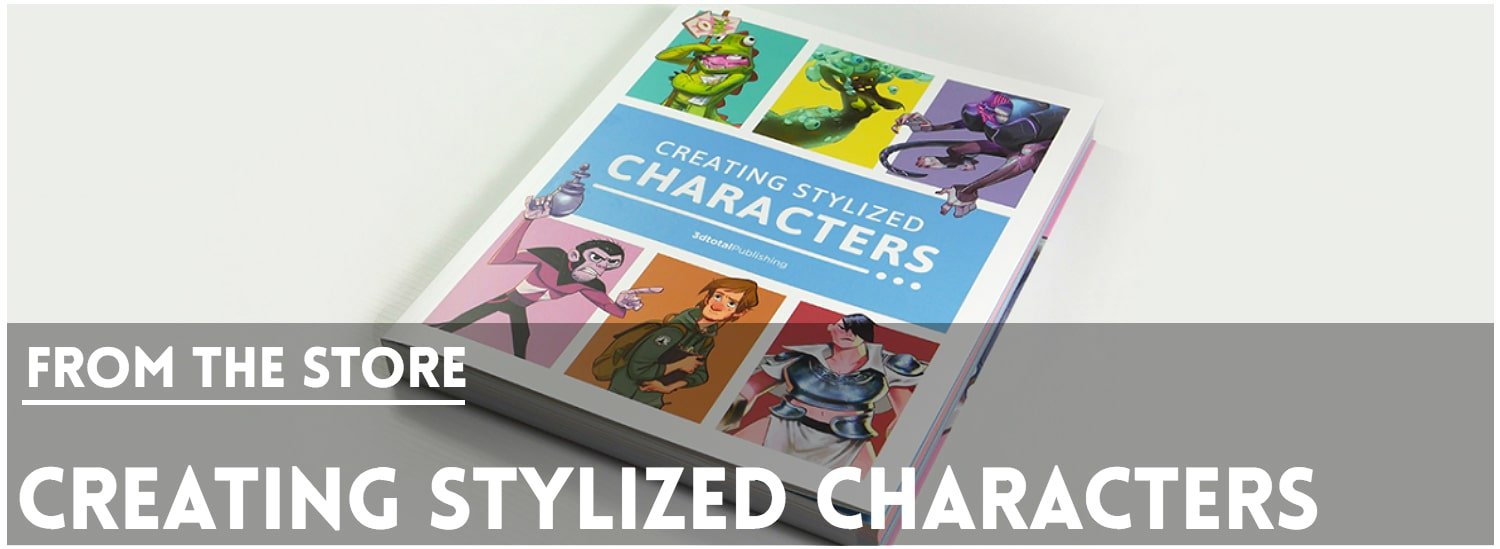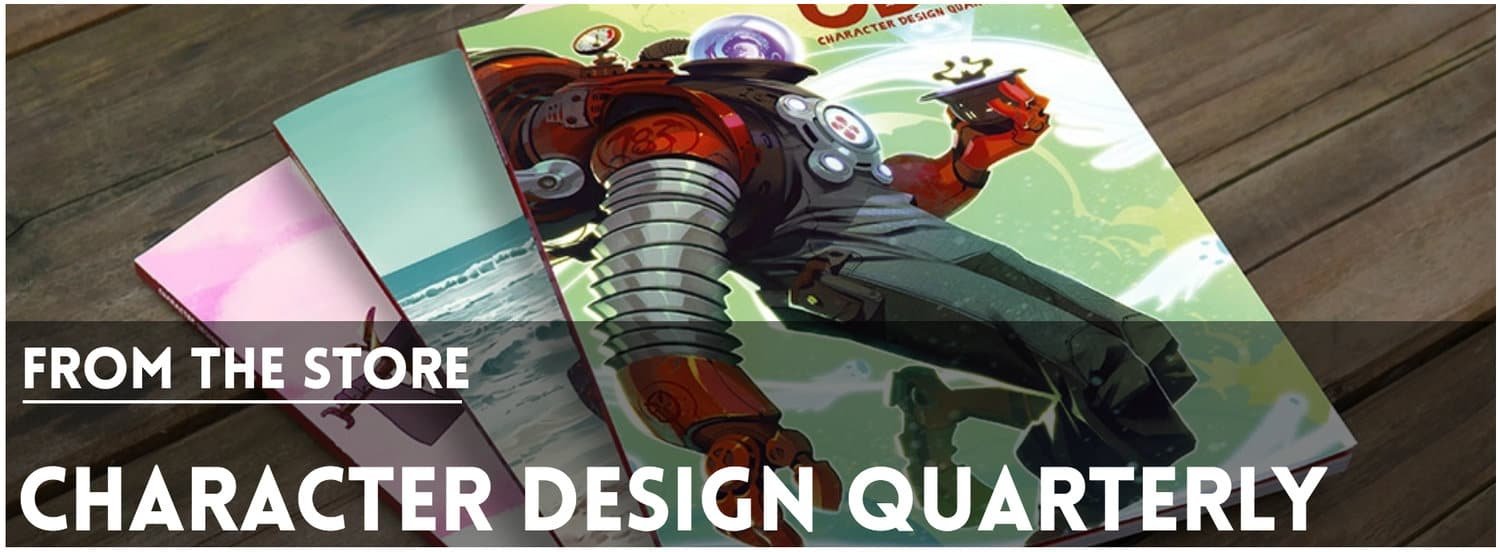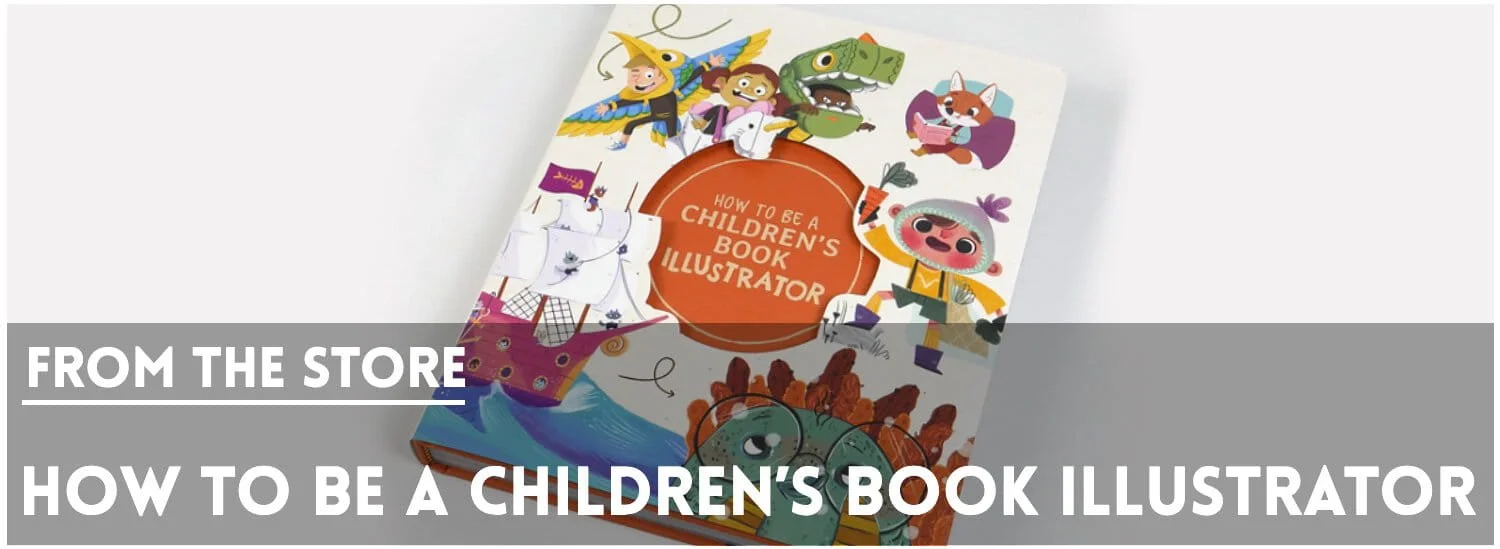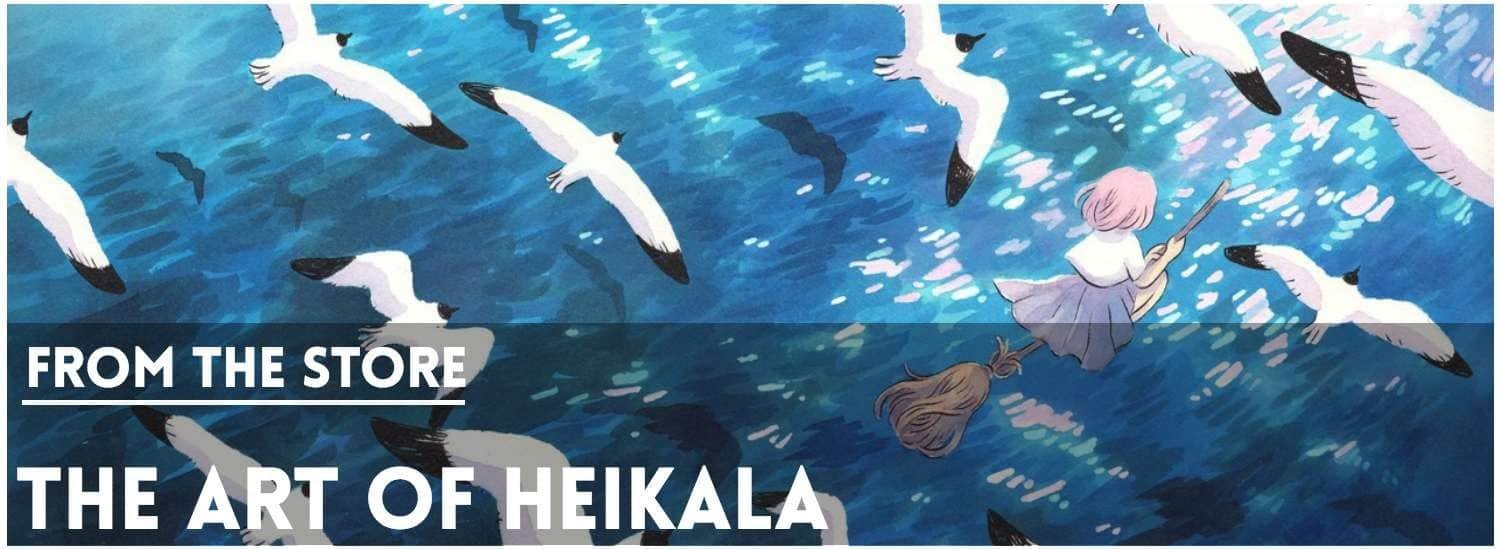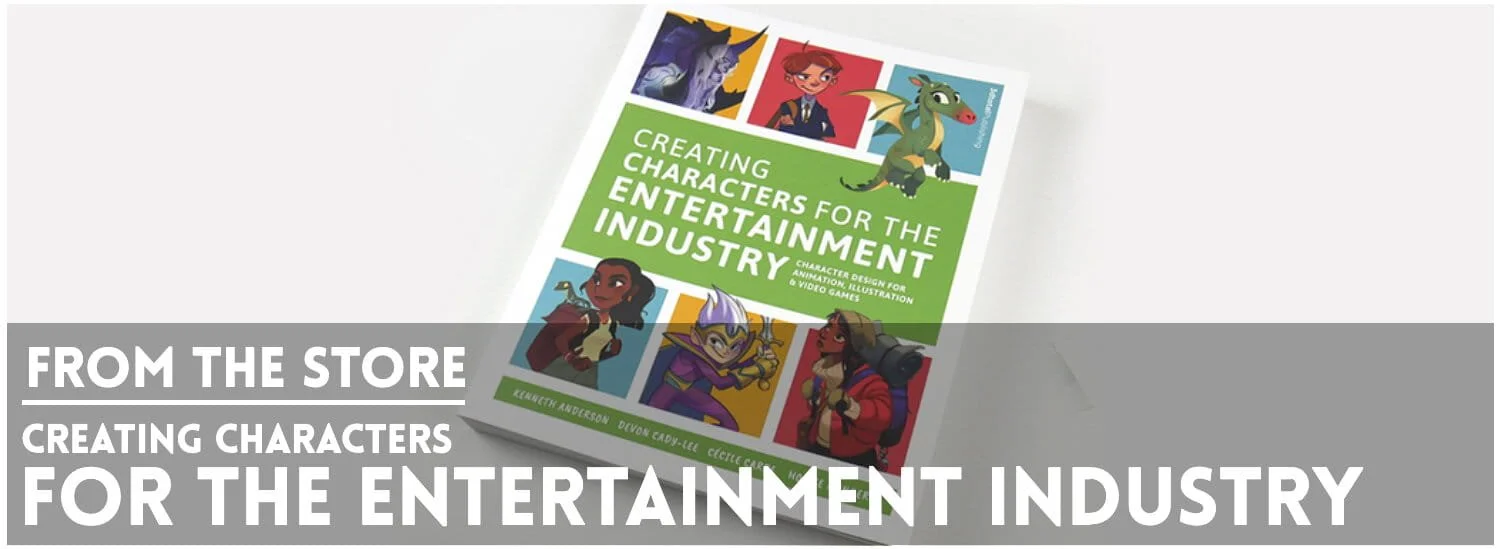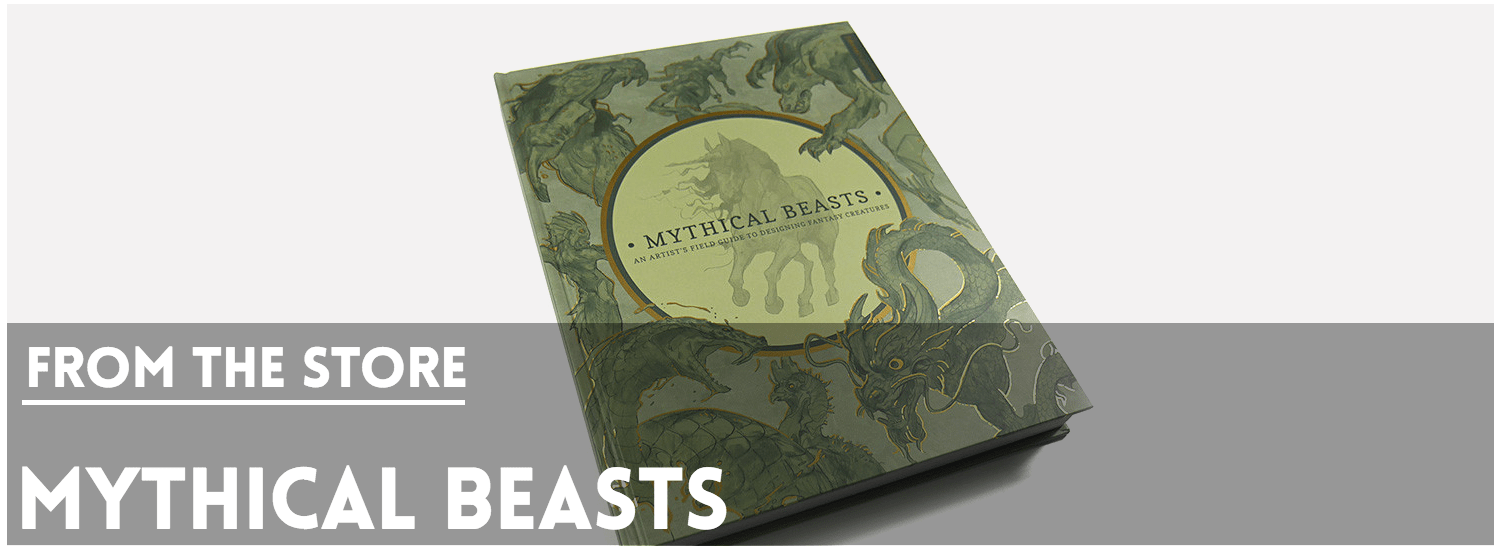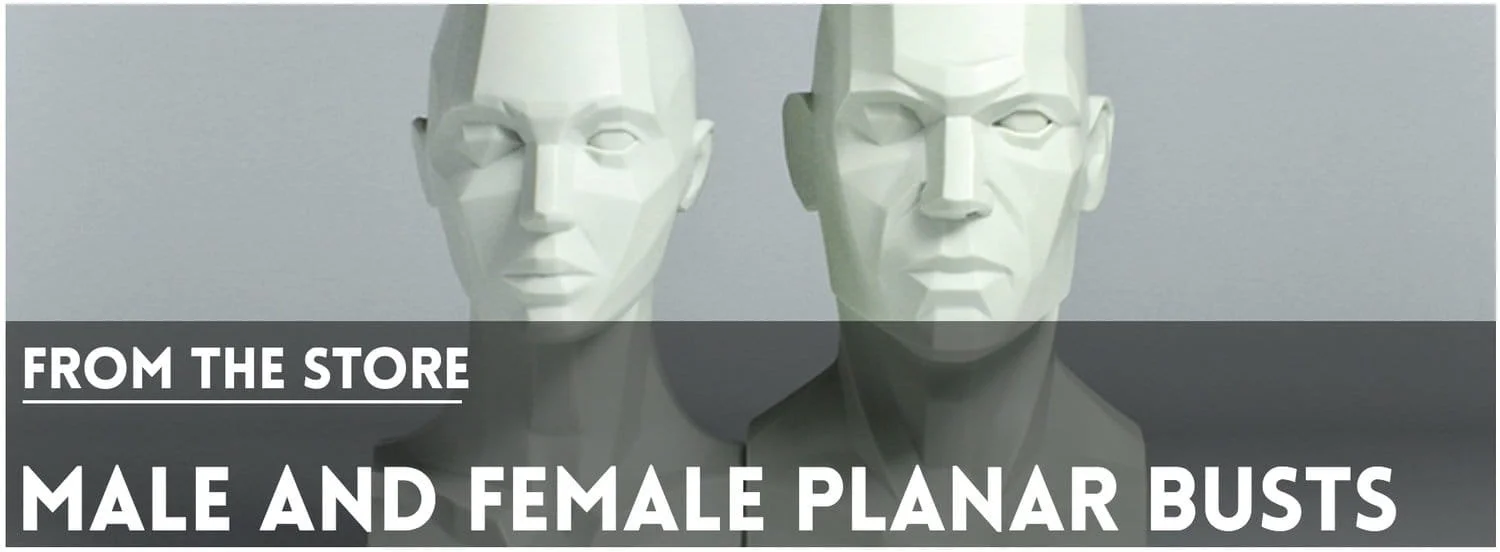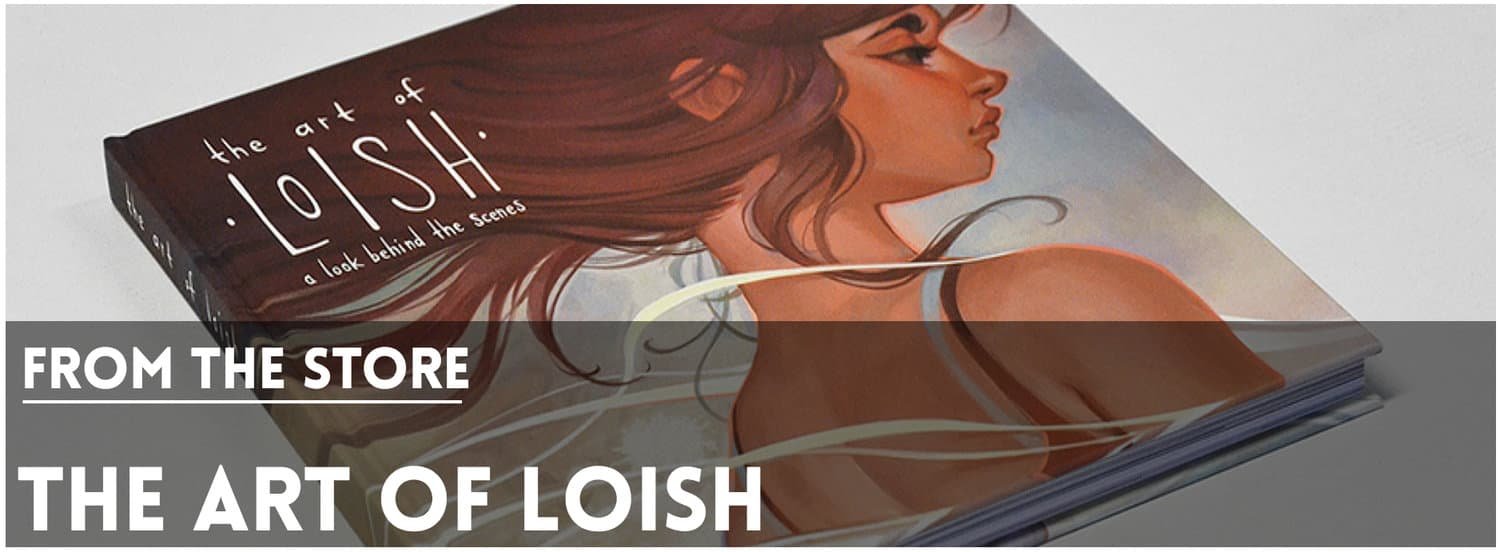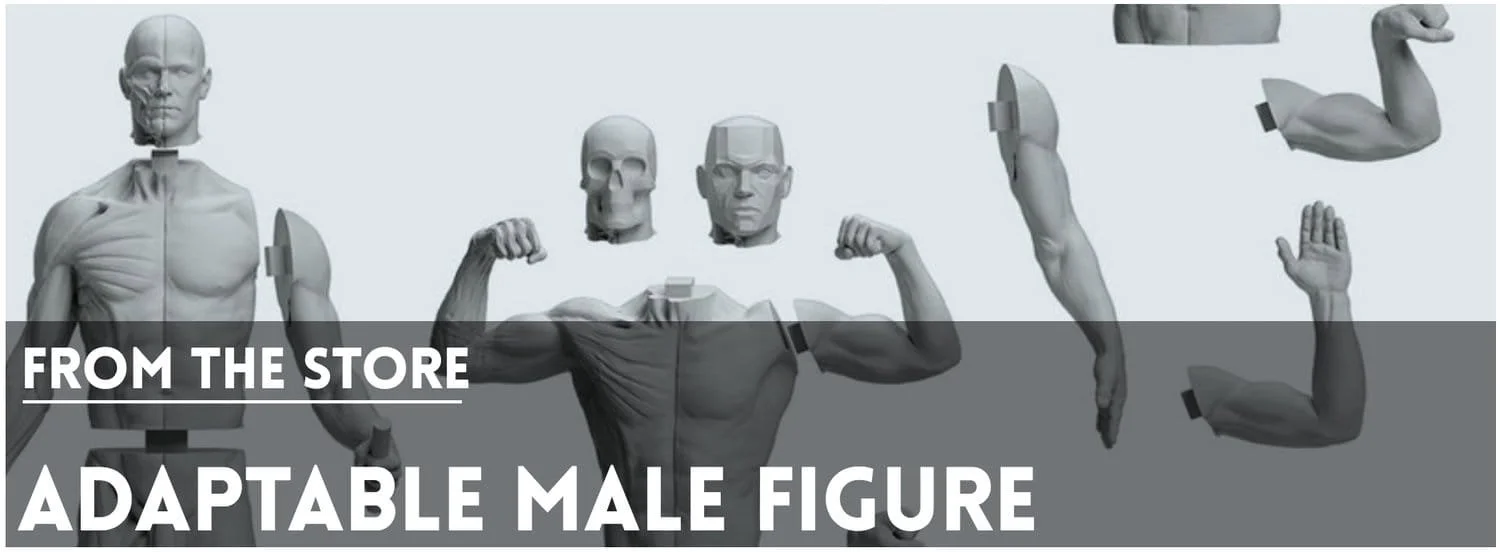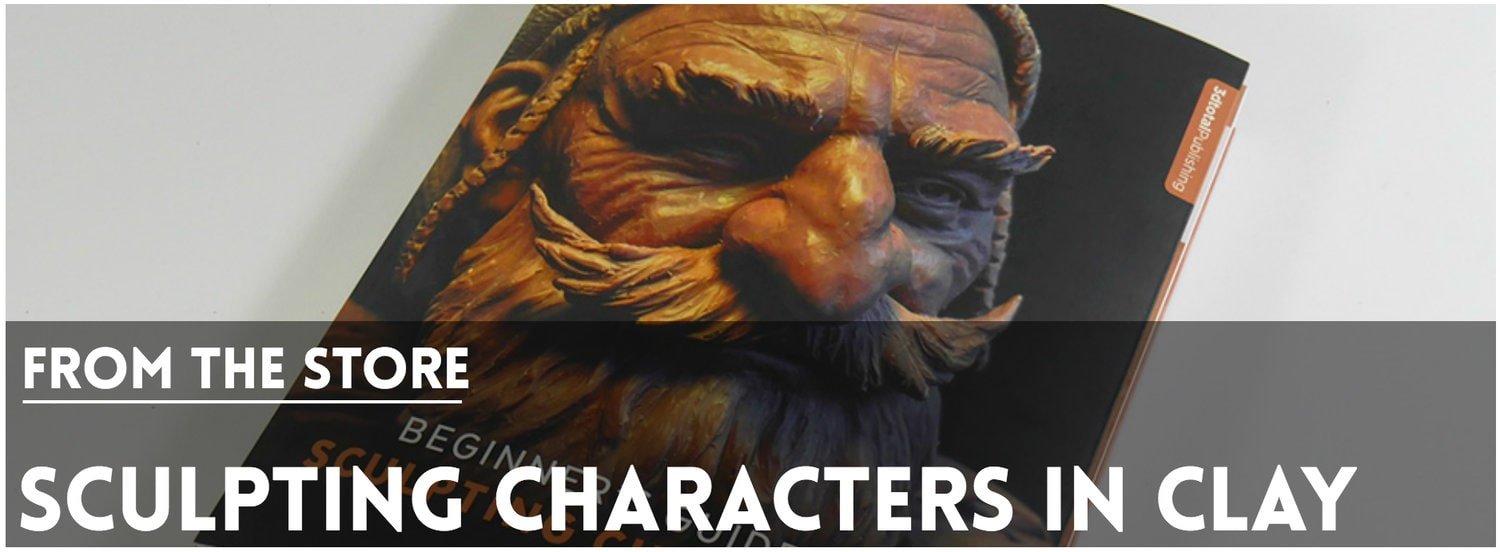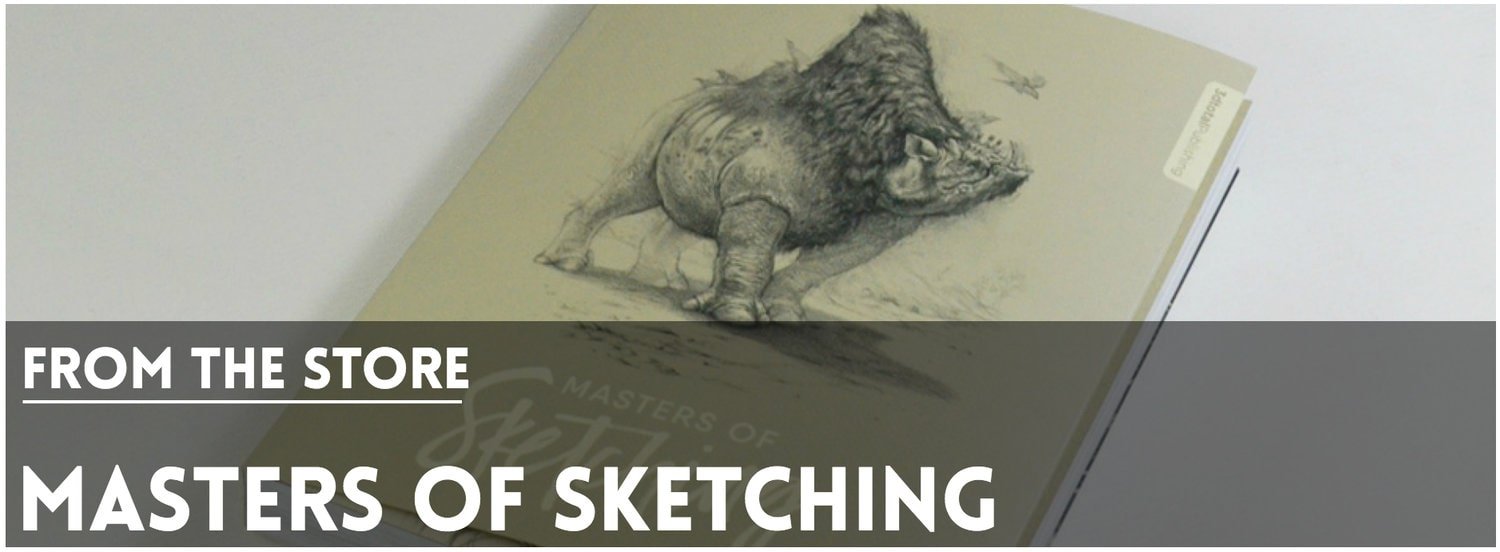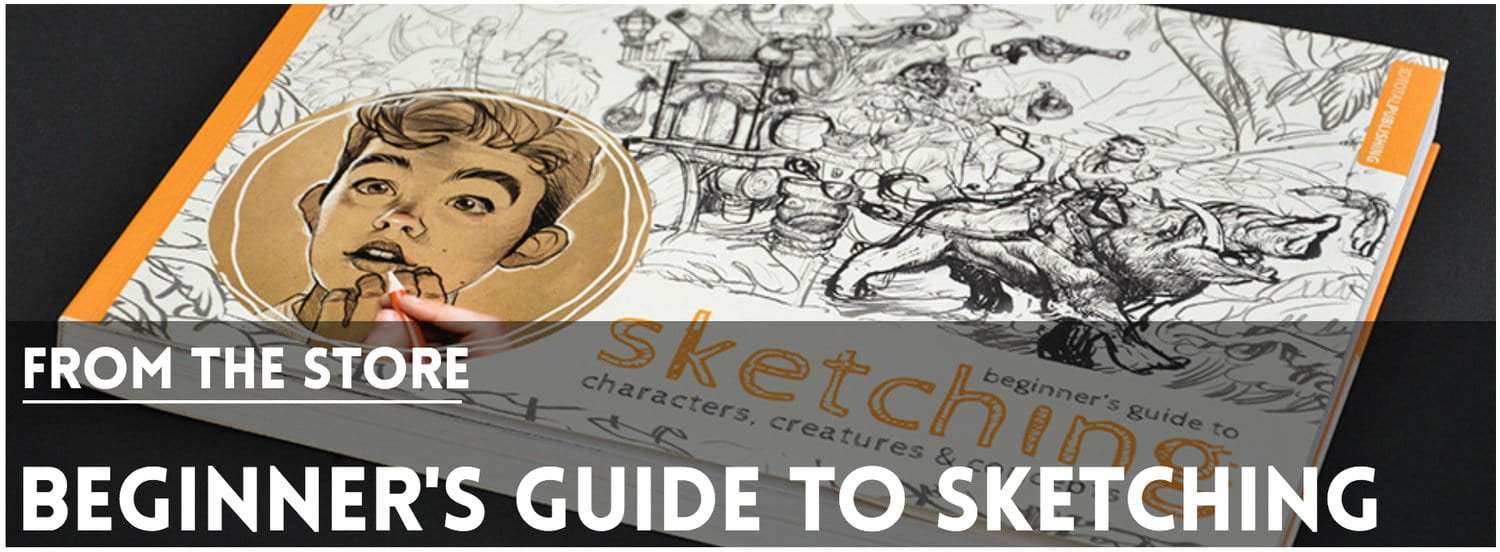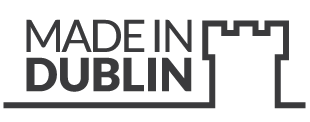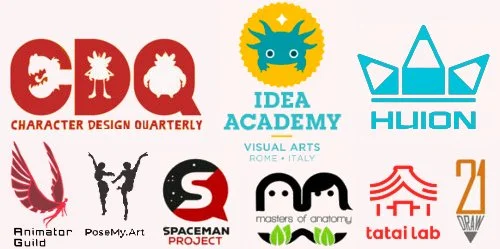Mauricio Abril
/Where did you grow up? At what age did you start thinking about pursuing an artistic career?
I grew up in a suburb about an hour outside of Los Angeles. Even though I liked to draw as a kid, I never thought about it seriously and stopped drawing around the age of 10. It wasn't until I was 25 that I thought about going back to school to study art but I had no idea what I'd do or what I even could do as an artist.
Did you go to an art school or are you self taught? How did you develop your skills?
I went to the Art Center College of Design in Pasadena, but I always stress to my students that I supplemented my education with individual classes at smaller schools like the LA Academy of Figurative Art and Concept Design Academy. At the time I wanted to be an artist there really weren't any options other than going to a full time college. Social media hadn't really evolved to what it's become today, and none of the more specialized art schools and online programs even existed. Nowadays I tell students that they can easily get a great education by piecing their curriculum with classes from all over but they have to be smart about what they're taking, in what order they're taking it and whom they are learning from.
Have you always been supported in your artistic path or has it been challenging to let your family and friends understand your choice?
I've been lucky in that my mother (and family) have always supported my artistic career path, but funny enough it wasn't so easy for my significant other at the time to understand the sacrifice involved. I bring it up because it's a pattern I've noticed among people who enter a rigorous full time art program and probably even more so for those who are doing it online on their own. It's important for young students to know that this path is not akin to your average undergraduate college experience. When I was in school I devoted myself to practicing and getting better 14 hours a day every day. You just have to. There's no other way. You've got to be drawing and painting all day and all night, all through the week and on the weekends if you want to succeed and that can be difficult when you have friends, family or significant others who don't understand and end up making you feel guilty for not giving them enough time. The way to look at it is that you have to sacrifice and put in your time at the beginning so that you can build the life you want after you're done with the main part of your education.
What was the strongest influence you had when you were growing up ( artists, movies, cartoons, comics etc.. ) ?
I'd say movies and tv shows because of the stories they told. I didn't realize it at the time, but I wanted to be a storyteller even as a small kid and that was most likely a result of how the shows and movies I loved drew me in to their worlds. Now I try to do that not just with my art, but with my writing as well.
Did you have a favourite subject to draw when you were a child and do you still have one today? If you do, what makes it so special?
Definitely comic books and comic book related shows and movies. I'm a huge comic geek and my Superman tattoo on my arm is testament to that.
From the initial client idea to the final work: What goes through your mind and what is the method you use when starting a project? Could you describe it?
As a freelance artist my main job is making sure the client has what they need to do their job. So if someone is asking me for an illustration to help them sell an idea to their higher ups, then I look at my job as not just having to turn in one illustration as per the contract but about crafting an image that really sells the idea/story/emotion of what they're asking for. So often times I try to suggest things that they hadn't thought of if I feel they might like it and I try to create a dialogue with them. They usually end up appreciating it and we end up with a better product in the end as well.
What is your process in creating your art and what are your favourite tools?
My process is pretty standard for most digital artists nowadays. I sketch straight onto a Wacom Cintiq screen using Adobe Photoshop and then color my illustrations within the same program.
What part of the creation process is the most fun and easy and what part is the hardest?
It's funny because the idea is the both the hardest and the most fun! Sometimes I get a really clear concept in my head which easily translates to paper, and other times I have to search for it and dig deep in the digital dirt to find it. But without that idea I wouldn't have any interest in making a painting or finishing a piece.
What is a typical day for you, and who are the people you work, collaborate or share your creative time with?
Since I'm a freelance artist by choice I pretty much work from home unless a client specifically asks me to work at their studio. So for the most part I work at home alone and I interface with my clients via email. Every so often I'll go in to meet with people cause it'll be more efficient to do so in person, but that's not that common for me.
What are some of the things you have learned from other artists who you have worked with or whose work you have seen?
The thing I try to do when I see an artist I like is study and break down their work in my mind. So it's really more about asking myself: what shapes did they use to draw that figure jumping so convincingly? Or how were they able to make that person look puzzled with just a few lines? Or how were they able to paint this and make it look very simple? Things like that, so for me I'm always studying because I've always believed that a true artist, whether they're a painter, musician, or whatever, never stops studying.
Is there something that you have designed that you are most proud of?
Professionally I designed and illustrated the cover to a book set to be published by Games Workshop later this year, and I was really proud of how it all came together especially under the time constraint. Personally I'm proud of my Halloween illustration "Shadow Play" which features three little kids trick or treating against a white fence wall with their shadows representing the characters they're dressed as. It's been shared exponentially since I first made it and seems to be an evergreen piece especially every Halloween.
What projects have you worked on in the past and what are you working on at the moment (if you can tell us)?
Some of my projects include a lot of designs for Walt Disney Imagineering whom I'm currently working for. I can't say too much about the current stuff, but I can say that some of my designs were built for Disney's newest park in China, Shanghai Disneyland.
Do you have a longterm career goal? What would your dream project be?
I'd say my longterm goal would be to develop more publishing projects and build a following around that. I've self-published one children's book so far and I'm currently working on another book that's more Young Adult/Adult.
Working in-house for a company or freelancing: what suits you best? And why?
Definitely freelance! I get to work from home, avoid any issues having to do with office politics, and focus just on the work without any distractions. Oh, and I get to go to the gym during the middle of the day when there's no one else there.
What advise would you give to an artist who is dealing with an artist's block? How do you boost your imagination and keep yourself creative?
Whenever I've gotten artist's block the one thing that's always helped is to not fight it and just let it pass. So whenever I'm stuck on an idea or not feeling inspired at all, I just leave it alone. I forget about art. I go and do something else that is just pure fun. I maybe play one of my favorite video games. I go to Disneyland (which is fun and inspiring for me). I find a new series to binge that I haven't seen yet. I try to do something that is just pure play but that is slightly related to art or creativity. It usually knocks loose a few creative gears which is all you really need to get started.
Who are the artists who inspire you the most today and what are some of your favourite designs out there?
Too many to list but if I had to call out specifics it'd be someone like James Gurney who is both a storyteller and a great classically minded illustrator.
Concept art, animation, illustration, comics, you name it. There are so many careers and when you are very young, sometimes you know only one thing: you simply love to draw. In your opinion, what should a young artist take into consideration to make the right decision when choosing an artistic path?
Honestly just focus on the fundamentals. I see way too many young students diving right into Character Design because they see all these cool things on Instagram and what not, but they've never really drawn the figure from life. Or they're trying to design these really complex video game environments but they've never tried to paint their living room with oils or acrylics or even digitally. If you've got your fundamentals down, then you'll have way more options and might possibly be able to go down more than one fork in the road.
Computer Graphics Master Academy (CGMA) is one of the most appreciated online artistic training worldwide. Can you tell us a bit more about your experience as one of the school's instructors?
I really value and respect CGMA's professionalism. From how they treat their instructors to how they interact with their students, it makes me feel good to be a part of something like. They're really great about making sure we instructors have what we need to teach and that the students feel like they are getting their money's worth.
What’s your point of view about the industry today: what are the expectation for someone who wants to make a living with an artistic career?
This goes back to my point about being a student and that it's about how much are you willing to sacrifice because this career path is hard. Not only is it hard because of the competition, but it's hard because you have to work so much just to even make yourself competitive.
As one of the instructors of CGMA, what are the most common mistakes that you come across when reviewing the work of your students? How important is it to receive feedback from a professional such as yourself, and how will students benefit from it?
I think most students don't really realize how important it is to meet your teacher's (aka your client's) delivery specifications. I ask for 3 jpegs 11x17 with their name at the bottom and I get 2 jpegs one of which is a square and no name bar at the bottom. Professionalism goes a long way, and impressing your teachers is the first step towards being a professional. Feedback from a professional is important because it allows you to gauge your progress by industry and professional standards. This age of social media is great for getting one's art out there, but it can be a double-edged sword when it comes to critically evaluating your own progress. Trying to base your improvement by looking at artists is something every artist does but having a professional give you direct feedback is exponentially more valuable and will help you target your weak points.
Finally, where can we see your art online and get in touch with you? Where can we find all the info to know more about your teaching approach and enrol to your classes?
You can find me online on Instagram as @MauArtist or on Facebook as ( facebook.com/MauricioAbrilArt ) which is where I post all my art updates and info about new class opportunities. You can also contact me on my website ( www.mauricioabril.com ).
Join Mauricio's
next class!
Mauricio Abril is one of talented instructors of CG Master Academy. Discover all the details about his course, join his next class and develop the skills you need to enter the industry and pursue the career you love.
